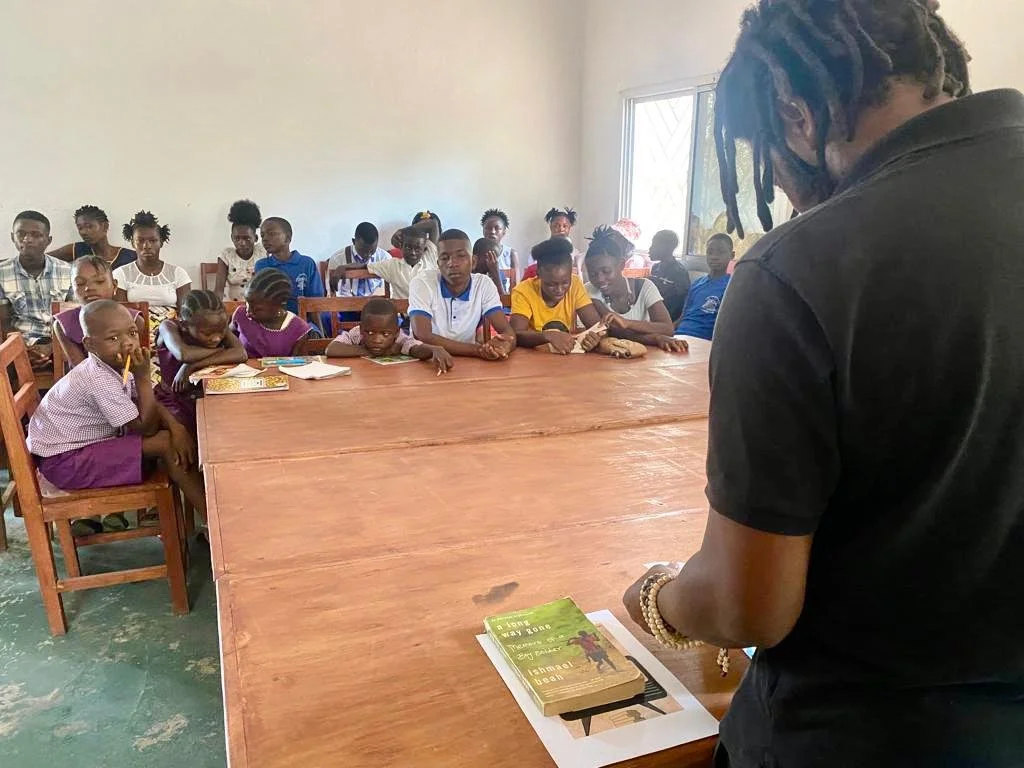Today, there is an echoing silence on the streets of Freetown, the capital city of Sierra Leone. There are more armed police and military – it is difficult to discern the difference, as they are all heavily armed and carry the tools of instability. It is as though we have a possibility for war.
Perhaps the war is the upcoming election, which will take place this weekend. These are immensely significant elections on account of the dwindling nature of progress on many fronts: social, economic, political, and even ethical as the rule of law has obviously deteriorated countrywide.
In the past, such moments leading to elections have not been quite as threatening with a show of force from the police and military. The government says it is for the ‘prevention of violence’ so that we will have a peaceful, free, and fair democratic process. So, here we are, in the name of ‘peace’ and ‘law and order’ dealing with the heavy hands of force from the state and threatening rhetoric about prison time for anyone who might ‘disrupt’ the electoral process.
What is worrying is that the definition of ‘disruption’ has been framed solely by the state – and in particular, the incumbent party. In their rendering, ‘disruption’ means our constitutional rights must be held hostage in the name of peace, rather than protecting and upholding our basic rights as we move towards casting our ballots on June 24.
As it stands today, we have no rights of association because the state has determined that this freedom might lead to public demonstrations; however, we are granted such rights if it is seen as being in favor of the incumbent party. We have no freedom of speech, especially if we are critical of, or express any dissatisfaction, towards the incumbent party and its leaders; on the other hand, if we have praise for them, even though the realities prove otherwise, then our rights are respected.
As the election nears, these realities are getting harsher. Young people especially are being arrested simply for sitting idly in groups, an occurrence that has become commonplace due to the lack of work and economic opportunities. The youth gather to discuss frustrations about our current state of politics, of economic hardships, the rising prices of goods, even local ones, while wages remain woefully stagnant.
Today, there are no spaces for constructive dialogue, and civility in any sort of conversation pertaining to the future of our nation is absent. Though in theory, the government works for us, we cannot question the efficacy of their work. They are the judge and jury of their own poor performances.
And now to have peaceful elections, we must remain silent, share no opinions, sacrifice our rights of movement, association, and refrain from healthy protests in any shape or form. The exercises that are the foundations of any durable democracy are being stripped away, all in the name of ‘ensuring a peaceful election.’ We are being threatened and ordered to give up our rights for a so-called ‘peaceful’ process, one that outside observers can praise, and foreign journalists can marvel at. I wonder, though, what kind of government – in substance and in reality – we will then be left with post-election?
Of course, I do not want any forms of violence in my country. I know firsthand what that does to our nation. But I also know that the repression of our basic democratic rights – this assault on our existence – ultimately leads to violence down the line. It erodes the ground that underpins our nascent democracy that we, as citizens, have worked so hard for.
In practice, ‘peace’ means allowing people to have their rights fulfilled and creating spaces for dialogue, whether in favor of or against those who might be in power. Peace is not fearing ideas and opinions of others, but rather allowing them to be heard. Peace is freedom of movement, thought, and association in safe spaces that allow citizens to freely speak their minds without fear of reprisal from the state.
I am unaware of any society that has progressed through silencing their citizens or forcing them to sacrifice their rights in the name of ‘peace.’ These concerns are not about favoring our incumbent party, or the main opposition candidates who are contesting in the election. These concerns are about the precedent that is now being set in Sierra Leone. Are we going to be a nation that agrees with the repression of our rights in the name of ‘peace’? Or will we stand up and condemn those who do not give those rights their due respect and the space to exercise them?
Achieving sustainable peace will not be accomplished by actions that silence and repress. If we are not given the space to act and to demonstrate as free citizens, then we cannot claim to have a free, fair, and democratic nation, let alone a credible election this weekend.
Ishmael Beah is the author of several novels, including Little Family and Radiance of Tomorrow, as well as the memoir, A Long Way Gone, which was a #1 New York Times and international bestseller. A UNICEF Goodwill Ambassador, he lives in Freetown, Sierra Leone with his wife and three children.
DISCLAIMER: The views expressed in this publication do not necessarily reflect the opinions of Vanguard Africa, the Vanguard Africa Foundation, or its staff.

